|
Isn’t it annoying when you’re working on a construction project and you run out of materials before the task is completed? You’re sure you ordered enough material to complete the work! Why isn’t there enough material? Did someone steal it? Well perhaps they did – but there could be several reasons why there’re insufficient materials for the task. Sometimes the construction materials needed can be quickly gotten from the nearby store, but even so work is interrupted, possibly the construction team stands idle while the material is fetched, or the workers must be reorganised to do other construction work in the meantime. Unfortunately, in some cases the material isn’t readily available, and it could take several days to get the missing items to the project. Inevitably there are additional costs and delays which could jeopardise the success of the construction project. Why do projects experience construction material shortages?There are many reasons for construction material shortages and proper care should help avoid this from occurring.
Have the right quantity of materials on your construction projectIt’s worth spending extra time to ensure you order the correct quantities of construction materials. Where necessary ask for expert advice to determine the normal wastage factors of a particular product. Look at different options for cutting and installing the materials, as well as the various sizes the products are available in. Careful planning and ordering of construction materials can reduce costs. Of course, always ensure that those installing the products understand how they should be installed to minimise waste and so that they don’t undo your careful planning. This could avoid costly and embarrassing mistakes. Investigate shortages before ordering additional construction material. The missing items may be lying unnoticed somewhere on the project, or the supplier might not have delivered the material yet. Regrettably sometimes construction project managers order additional materials to make good shortfalls, only to discover that the missing materials were found or were delivered later – resulting in there being too much material. Of course, always check the construction drawings because a shortfall of material may be because of drawing errors which resulted in more material being used than was allowed for. Importantly, keep a constant check on the available construction materials and act when it appears that there may be insufficient materials. Take timely action to ensure that your construction team is not left waiting for more materials. Have you run short of materials on your construction project? What was the reason? This article was first published on the ClockShark website. For construction and field service companies who want to get rid of paper time sheets, ClockShark is the GPS time tracking app that's both powerful and easy to use. Do you want to learn how to manage construction projects successfully?Paul Netscher has written several easy to read books for owners, contractors, construction managers, construction supervisors and foremen. They cover all aspects of construction management and are filled with tips and insights.
Visit to read more. The books are available in paper and ebook from most online stores including Amazon. © 2019 This article is not to be reproduced for commercial purposes without written permission from the author.
6 Comments
Do you want to learn how to manage construction projects successfully?Paul Netscher is the author of several construction management books, including ‘Successful Construction Project Management: The Practical Guide’ a hands-on guide for contractors, ‘Construction Management from Project Concept to Completion’ a valuable guide for employer/client-side project managers, and ‘Construction Claims: A Short Guide for Contractors’.
White elephant projects. Budgets need to allow more than just money for construction. Projects must be staffed, operated, and maintained. Governments are good at building white elephant projects. Read my book 'Construction Management from Project Concept to Completion' to learn more about project managing your project to success. Government are now in a rush to spend money on new construction projects in an attempt to create jobs and stimulate economies after covid 19. Have these been well thought through? Are they the best use of tax payer funds? Will there be long term benefits or will the next generation be paying for wasted expenditure? How many white elephants will be created - unused infrastructure and empty apartments? See this article on white elephant projects. Read Do you want to learn how to manage construction projects successfully?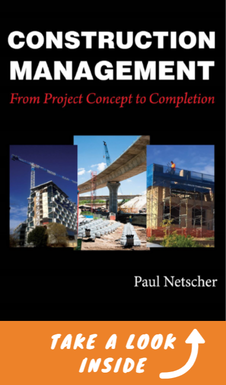 Many construction projects are doomed to fail long before construction even begins. They are the wrong project, built in the wrong place at the wrong time. The design is inadequate, the budget is wrong, a poor team is selected, and investigations are incomplete. At any stage your project can go wrong if it’s not managed correctly! But, good project management and planning will make your project a success. Construction Management from Project Concept to Completion provides tips and insights for clients and client side project managers so that you can ensure your project is a success Construction is hard work and often involves long hours at work, sometimes lengthy commutes, and some projects even require that we spend nights away from home. We may leave home in the dark and return when after sundown. Often the kids are already tucked up in bed when we get home, or certainly, we’ve missed dinner with the family. It’s important that everyone gets time off, time to escape from work, time to enjoy with our families. Many of us think that we’re indispensable to the project and company, but if you organise things properly there’s no reason you can’t escape the project for a few days. Anyway, after a few days away from work you’ll come back refreshed, recharged and more productive (especially if you limit, or even eliminate, emails and telephone calls while you’re away). Not having time off will lead to health problems and it could result in family quarrels, problems at home and family unhappiness. This will impact your work, leading to lower productivity and even safety issues when you’re distracted by these problems. Regrettably, the construction industry has one of the highest rates of marriage breakups, mental health problems, stress-related illnesses, and suicides. Of course, your team also requires time off work. They also need time with their families. They need a rest. But this must be managed so that nobody abuses the system, frequently taking time off and disrupting the progress of the project. When to take time off in a construction projectTime off for illness Ill health can strike even the healthiest of us. This may simply be a cold or flu. Unfortunately, some are more prone to ill health than others. Some illnesses are contagious, so having somebody coughing and sneezing their way around the office is sure to make others sick. It doesn’t take long for there to be a mini-epidemic on the project and suddenly there are half a dozen absent from work. If you’re sick, stay at home. People who are ill are often on medication. Some medications can make you drowsy, and you certainly don’t want to be sleepwalking around the project – there will be an accident. Certain drugs can impair vision or slow reflexes, which could lead to accidents. But as you know, when you’re feeling ill you’re not exactly enthusiastic about work, you’re tired and feeling horrible, so your productivity is reduced. Things take longer to get done. You make mistakes. Just how effective are you at work when you’re sick? How effective is a sick person in your crew? Stay at home when you’re sick. If somebody in the crew is sick they should rather stay at home. Failing to take proper rest while you’re sick often means that you take longer to recuperate. But, worse, if you’re not careful the infection could spread through your body. Your simple dose of flu could spread to your chest and suddenly you have pneumonia, which will send you to the hospital, and in the worst case even kill you. We like to think that we’re tough and we act the martyr and soldier on at work, no matter how sick we are. But, is this really fair to our fellow workers who could catch our infection? Is this a wise course of action, or a folly that could risk our lives and the lives of others around us. A few days off work to recuperate from an illness may be just what you need to get better. The project won’t collapse without you, but it could be severely jeopardised if your condition worsens and you end up in hospital missing weeks of work. Sometimes we have health problems that we suffer through and don’t get treated. We should go for an operation, see a doctor, or get special treatment. The cost of these treatments is the primary reason that we avoid getting the problem sorted. Then there’s the time away from work and usually the fear of doctors and hospitals which makes us stall the treatment. So we live with the pain of a bad knee, the inconvenience of an eye problem, the discomfort of a small ulcer, or whatever. Of course, the problem isn’t going to fix itself and it’s only going to become worse and a bigger problem to treat. Get the problem sorted before it gets worse and is more difficult and more expensive to fix. Time off for compassionate and family leave From time to time, unfortunately, there are family health problems. Your mother, father, partner or kids could suddenly be taken ill, or need to be taken to the doctor. Are you going to be there to support them when you’re needed at home? Sure you can’t take time off work for every visit to the dentist or doctor, but serious family illness and emergencies will need your help. In an emergency, your partner will require support and comforting. ConclusionMost companies have policies regarding when you can take time off, how many days you can take off, and whether the time is paid or not. Paid sick leave may be limited to a specified number of days in the year. If it’s not used in the year it’s usually forfeited. If you’ve used all the paid sick days you’re entitled to, it doesn’t mean that you can’t take time off when you’re sick, it only means that these extra days won’t be paid. Of course, most companies usually demand to see proof that you were actually sick. Companies allocate a number of paid vacation days. Usually, these days can be accumulated to the next year if they’re not used. But, that really defeats the object of vacation days, which are days to rest and days to spend time with your family. Maybe consider taking a vacation day next time your kid has a birthday or plays in a big game. Do you know how many vacation days are due to you? The one thing I always did was take all the vacation days due to me, and even additional unpaid vacation time. My vacation was always important to me and I made sure I spent it far from work – yet none of my projects suffered. Of course never be the Grinch that refuses your employees time off, or who forces them to come to work even when they’re really sick. When did you last have a vacation? Have you recently spent quality time with your family? This article was first published on the ClockShark website. For construction and field service companies who want to get rid of paper time sheets, ClockShark is the GPS time tracking app that's both powerful and easy to use. Do you want to learn how to manage construction projects successfully?Paul Netscher has written several easy to read books for owners, contractors, construction managers, construction supervisors and foremen. They cover all aspects of construction management and are filled with tips and insights.
The books are available in paper and ebook from most online stores including Amazon. © 2019 This article is not to be reproduced for commercial purposes without written permission from the author. The construction industry is desperate for good experienced people. The situation for many contractors is exacerbated when skilled workers leave the company. Employee turnover and the fight to retain skilled people in constructionPeople will always leave construction companies and projects, but some construction projects and contractors experience a higher number of employees resign than other construction companies. It’s easy to be dismissive about people resigning, taking the attitude that if they want to go then they must go. Indeed, we also don’t want to be paying people excessively high wages or promising them extra perks to stay, because this often only works with mercenaries who are only after money and have little company loyalty anyway. But, the high employee turnover is disruptive and costly. It’s said that employing a new person can cost between a month and six months wages, depending on their skill level and how easily the person can get onto the project. How much does employee turnover cost construction projects and contractors?When a person leaves a construction project there’s normally a hole left behind, which usually results in less work being done. If the person has a key skill such as being a crane operator it could mean that the rest of the team can’t work effectively. Senior management and supervisors often leave a knowledge gap when they go, and frequently new individuals have to establish relationships with the client, suppliers, subcontractors, and the work crews, all resulting in disruptions and additional costs to the project. Employing a new person entails additional costs such as the costs to recruit them, which could include advertising for the job, employing a recruitment agency, time to interview the person, and then the administration costs to complete all the paperwork. Then there are often costs for medicals and inductions. Probably the cost of company uniforms and personal protective equipment and the person usually has to be paid while they attend inductions and company training. Finally, the person can start work on the project, where they often take a week or more to learn what to do, what the project rules are and where they fit in. When a person leaves their workload usually has to be taken up by others in the team until a replacement arrives. This results in additional stress and pressures which could lead to mistakes, shortcuts, poor quality, and even others within the team deciding the added pressure is too much and they also leave. Obviously replacing someone who is useless, or is a troublemaker, or who don’t have the required skills is beneficial to the project. Why are people leaving your company?Often people leave a company or construction project because they aren’t happy. Usually, the good people leave first – the ones that can easily find a job elsewhere. When one person moves to join another contractor they may induce others to follow. If a number of people resign then others will start to consider their position, wondering why everyone is leaving and thinking that maybe they should also move on. It’s therefore important to understand why people are resigning, then where possible put in measures to reduce the likelihood of more people leaving. People could be moving because of an abusive manager. People leave bad managers and supervisors. They may leave companies where they feel they aren’t being respected. Maybe they aren’t receiving a fair wage. Perhaps they don’t have the right tools or equipment, or the equipment keeps breaking. Possibly the working conditions are unsafe, or they have to work long hours, or away from their families. Sometimes employees are ‘poached’ by other companies, induced to work there with promises of promotion or better pay. Talking to the person resigning may help dissuade them from going. Some employees move because they think that the grass is greener on the other side of the fence, but maybe they don’t fully understand the benefits of staying and the downside of leaving and working for another contractor. But, even not being able to dissuade them, it may be possible to improve conditions for those remaining so that they are less likely to leave the company for the same reasons. Of course, good managers who understand and talk to their team will usually hear of problems and resolve them early before they’re a cause for unhappiness and people leaving the company. Conclusion – keeping good people is essential for contractors Image by s m anamul rezwan from Pixabay Image by s m anamul rezwan from Pixabay Construction companies need good people with the right skills. Contractors cannot afford to lose good people. However, it’s often not possible to retain good people at any cost when they want to go. There will always be contractors prepared to pay skilled good workers more than you can afford. Rather create loyalty in your teams by being fair and consistent, by treating people right, by providing opportunities for training and growth, by paying them fairly, by promptly dealing with their concerns, by giving them the right equipment and by clear and honest communication. Good managers will attract and retain good workers. Do you have a loyal team? How do you retain your good people? This article was first published on the ClockShark website. For construction and field service companies who want to get rid of paper time sheets, ClockShark is the GPS time tracking app that's both powerful and easy to use. Do you want to learn how to manage construction projects successfully?Paul Netscher has written several easy to read books for owners, contractors, construction managers, construction supervisors and foremen. They cover all aspects of construction management and are filled with tips and insights.
The books are available in paper and ebook from most online stores including Amazon. © 2019 This article is not to be reproduced for commercial purposes without written permission from the author. |
Archives
June 2024
Note: We welcome genuine comments, especially comments that add additional information to the subject matter in the article. We however reserve the right to remove inappropriate comments, which includes comments that have nothing to do with the subject, comments that include inappropriate language, and comments that are an advertisement for a product or company, or which include an advertising link. Comments must be in English. We will not enter into discussion on why a particular comment was removed.
CategoriesCopyright 2016 - The attached articles cannot be reproduced for commercial purposes without the consent of the author.
The opinions expressed in the attached articles are those of the writer. It should be noted that projects are varied and different laws and restrictions apply which depend on the location of the contractor and the project. It's important that the reader uses the supplied information taking cognisance of their particular circumstances. The writer assumes no responsibility or liability for any loss of any kind arising from the reader using the information or advice contained herein. "I have what I consider some of the best books on construction management."
Books are available from: Amazon.com Amazon.co.uk takealot.com kalahari.com Amazon.in Amazon.de Amazon.fr Amazon.it Amazon.com.au Powell's Fishpond uread bokus Amazon.ca Amazon.es Other retail stores Available in paperback or on Kindle "28 YEARS OF CONSTRUCTION PROJECT MANAGEMENT EXPERIENCE, DEVELOPING SUCCESSFUL CONSTRUCTION PROJECT MANAGERS AND BUILDING SUCCESSFUL CONSTRUCTION COMPANIES"
|
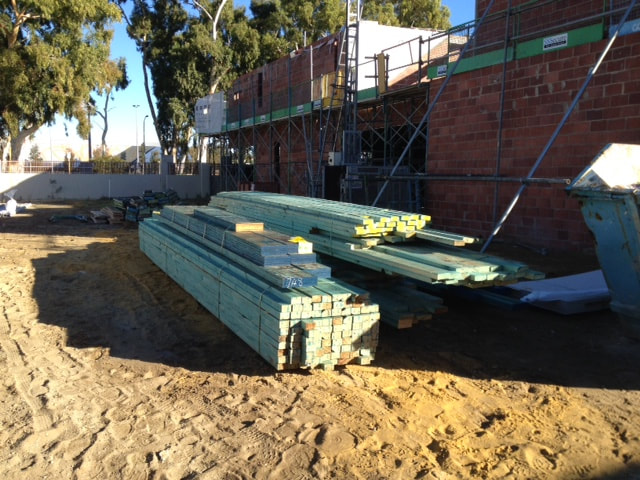


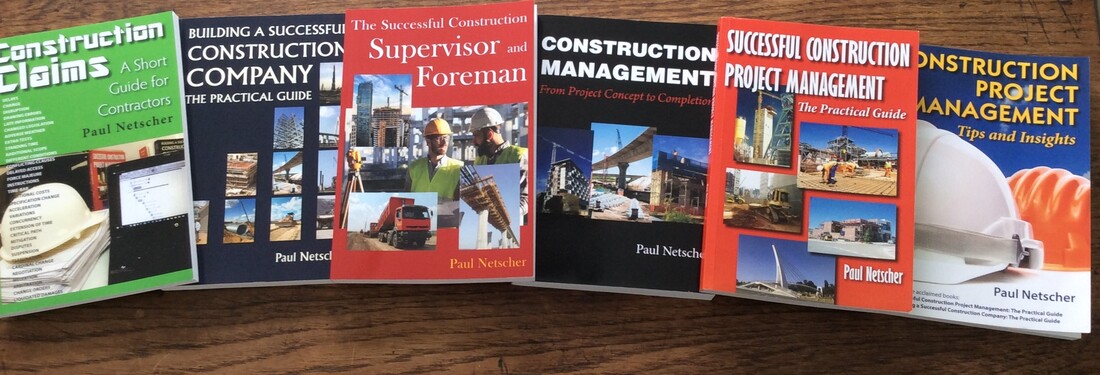

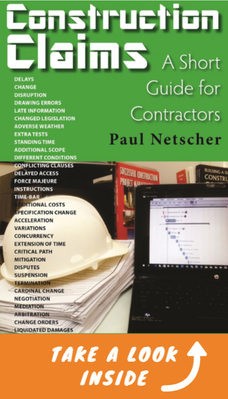
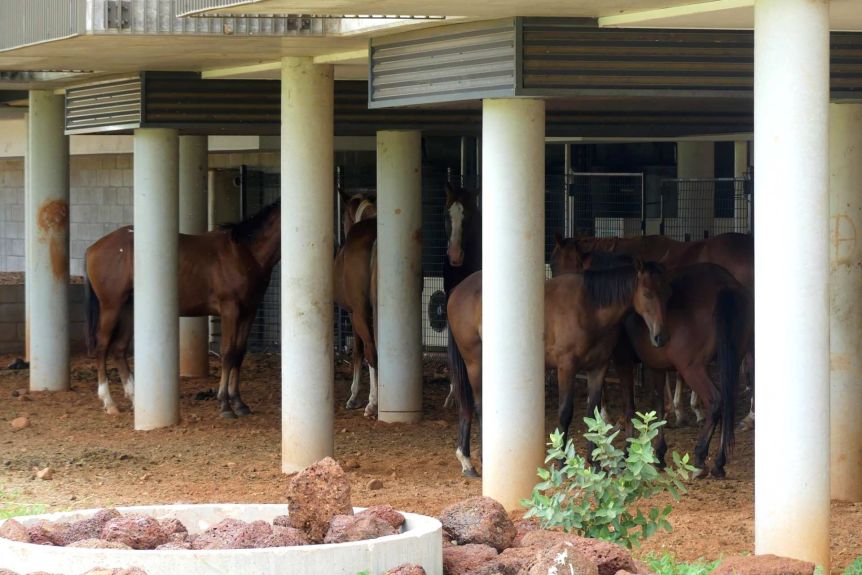

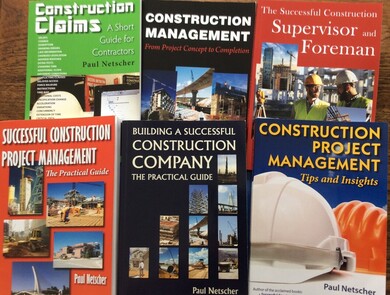




 RSS Feed
RSS Feed




